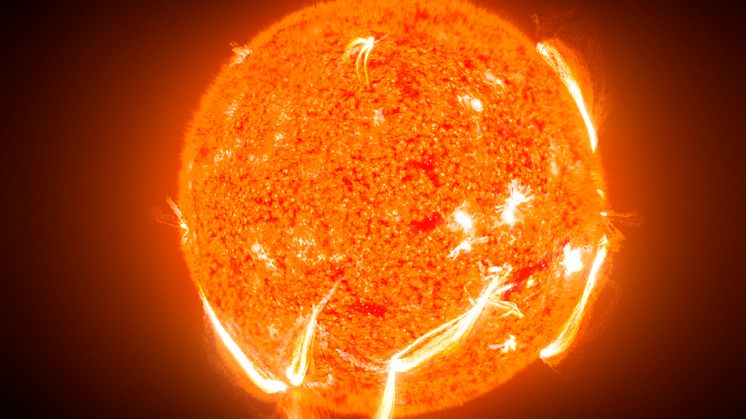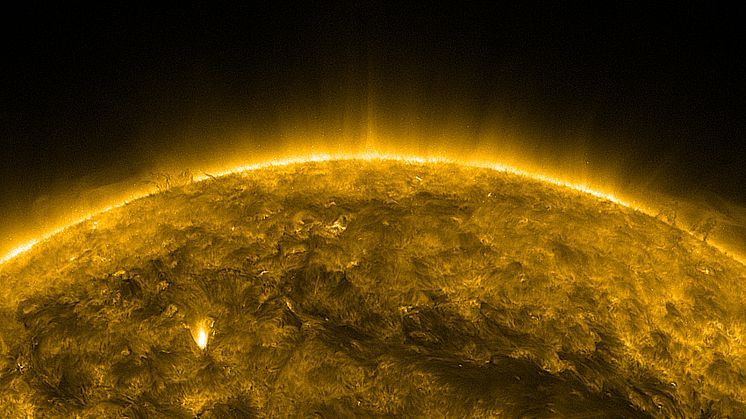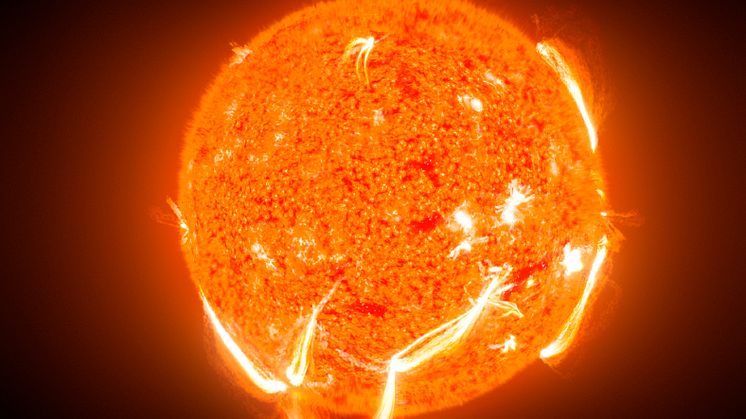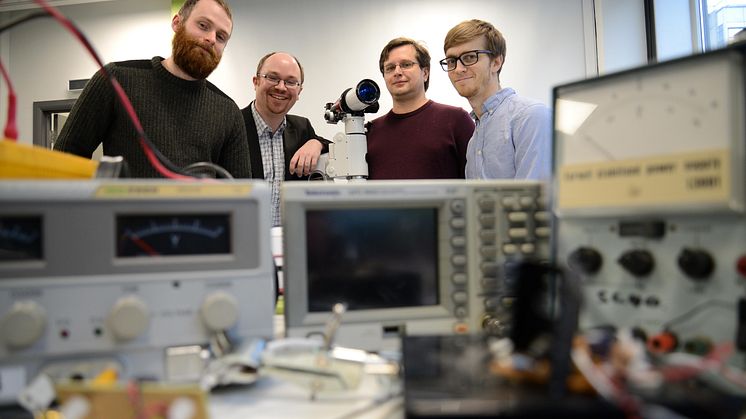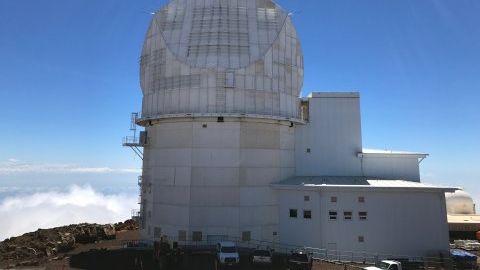
Press release -
Solar scientists visit North East to discuss international telescope project
Top physicists from around the world will meet in Newcastle next week to discuss the development of the world’s largest solar telescope.
The $344 million (£220m) Daniel K Inouye Solar Telescope (DKIST) will provide scientists with never before seen views of the surface of the Sun, allowing them to unlock its secrets and understand more about how it impacts our lives here on Earth.
A three-day workshop to discuss the latest developments has been organised by Northumbria University, one of the academic institutions involved in the project.
Led by the US National Solar Observatory (NSO), with funding from the National Science Foundation (NSF), the telescope is located on Haleakalā mountain on the island of Maui, in Hawaii and is expected to be ready for use in 2020.
Dr Eamon Scullion, of Northumbria University’s Solar Physics research group said: “With a four-metre diameter primary mirror, the DKIST super-telescope will be able to pick up unprecedented detail on the Sun’s surface – the equivalent of being able to examine a £1 coin from a distance of 100km.
“Northumbria’s role in the project is to develop software which will be used to extract data from the telescope, providing key insight into the physical mechanisms responsible for energy transfer in the Sun's atmosphere and how this relates to solar variability. This includes the generation of space weather, including solar flares, which can disrupt communications and even affect electrical power supplies on Earth.
“We are very pleased to be hosting this workshop here in Newcastle and welcoming world-leading solar scientists to the North East to discuss the next stage in the development of this exciting project.”
Taking place from Monday to Wednesday next week, the event is one of nine workshops being held all over the world, designed to inform the creation of the DKIST Critical Science Plan. This will set out the key scientific goals for the first two years of the telescope’s operations and, in the process, help refine data handling procedures and science operations.
The Newcastle workshop will bring together leading experts in the UK and USA to propose the critical science that DKIST should address in relation to wave generation and propagation in the solar atmosphere.
It is hoped the DKIST project will help scientists answer questions about how magnetic energy around the sun builds up and how it is released and transported in solar flares and coronal mass ejections.
Northumbria University has invested £100,000 into the DKIST project and is part of a UK Consortium, led by Queen’s University Belfast, which is working to support the development of the telescope’s instrument detectors. The Consortium also includes Armagh Observatory, the University of Glasgow, UCL’s Mullard Space Science Laboratory, the University of Sheffield, the University of St. Andrews and the University of Warwick, which have each provided funding, along with the Science and Technology Facilities Council and Andor Technology, which produces scientific digital cameras.
In return for their investment and contribution to the project, members of the UK DKIST Consortium will have guaranteed access time to use the telescope once it is complete, in addition to competitively awarded open time.
The Northumbria workshop will be opened by Professor Glen McHale, Pro Vice-Chancellor for Northumbria’s Faculty of Engineering and Environment. He said: “At Northumbria our courses are at the forefront of current knowledge and practice and are shaped by world-leading and internationally excellent research.
“Being involved in the DKIST project means our academics and students have the opportunity to take part in truly ground-breaking research, both during this construction phase and once the telescope is operational.
“We look forward to welcoming our academic colleagues from around the world to Newcastle and showing them what we at Northumbria University have to offer.”
For more information about the DKIST project, visit https://dkist.nso.edu/
Find out more about Northumbria’s Solar Physics research group and courses available within our department of
Topics
Northumbria is a research-rich, business-focused, professional university with a global reputation for academic excellence. To find out more about our courses go to www.northumbria.ac.uk
If you have a media enquiry please contact our Media and Communications team at media.communications@northumbria.ac.uk or call 0191 227 4604.








